In May, the World Health Organization brought a brighter spotlight to what many workers may have already found obvious: People can be overworked in their jobs, and it can have a profound effect on their health.
The WHO upgraded burnout to what it now calls an occupational phenomenon. Burnout, it says, is a syndrome resulting from chronic workplace stress not successfully managed.
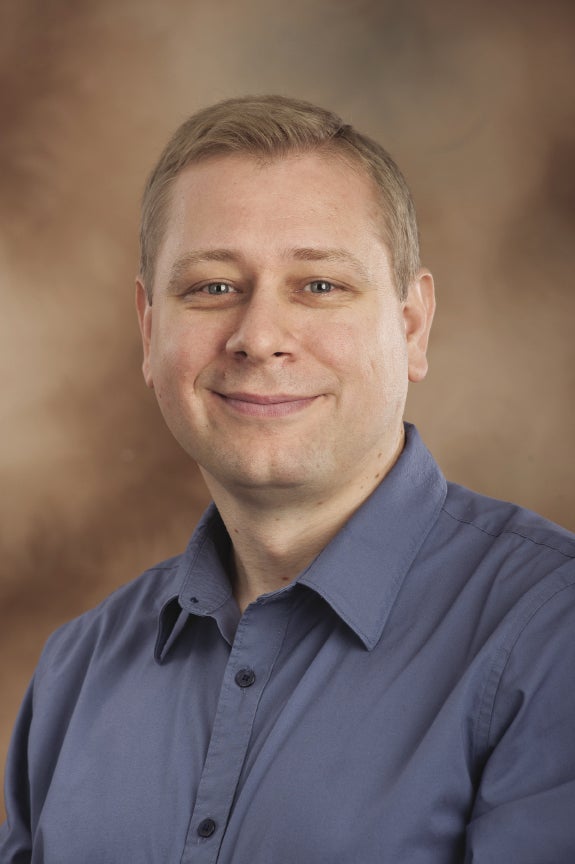
To those in the medical or mental health communities, the new designation can be seen as either a helpful step for greater awareness or a step too far toward pathologizing too many conditions.
“It really has been an issue for awhile,” Adam Volungis, a psychology professor at Assumption College in Worcester, said of burnout. “When I read [the new designation], I thought, it’s about time people are recognizing it more.”
Dr. Darshan Hemendra Mehta, the medical director at the Benson-Henry Institute for Mind Body Medicine at Massachusetts General Hospital, sees the designation as helpful to destigmatize anxiety the harmful effects of overwork. But many of the conditions the WHO sites, he said, like pessimism and loss of interest, could be explained by other things not related to work.
One prominent voice in the field thinks the designation could open the possibility of a harmful drain on resources if workers choose to claim burnout, with skyrocketing costs for paid time off or medication.
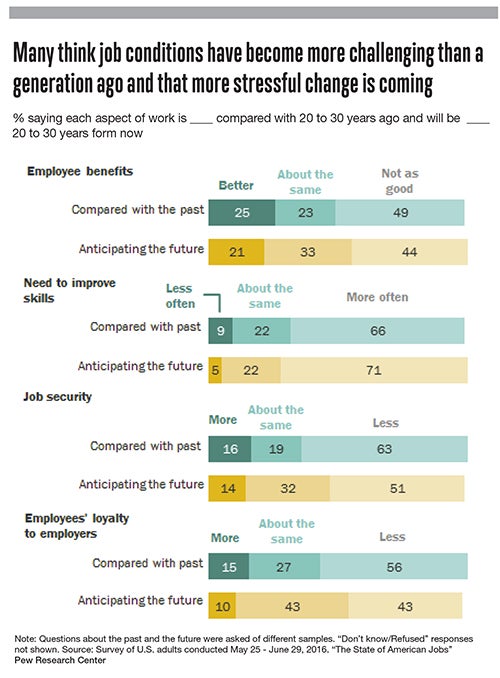
“Everyone can now claim this new disorder for the compensation, depending on their personality,” said Dr. Daniel Kirsch, the president of the American Institute of Stress, a group that aims to work with the industry and raise awareness of stress conditions.
“Before this you had to have a physical injury or actual mental health disorder,” Kirsch said. “Follow the money, and I’d bet you would find big pharma’s hand in this.”
That burnout would require greater consideration is not news to many in the medical community, especially those who’ve been working to address high burnout rates in their own field. With long hours, lots of forms to fill out and other factors, 44% of physicians told the American Medical Association in January they were burned out with their jobs.
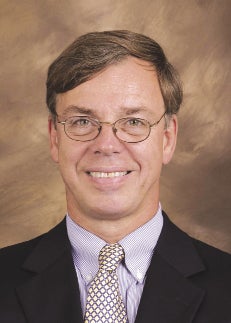
“Physicians go into medicine to help people,” said Dr. Stephen Tosi, the president of the UMass Memorial Medical Group in Worcester, citing other factors including hospital overcrowding and long wait times. “They want to make people feel better, and it can be frustrating when you have no control over the flow of who’s coming in and how long people will be waiting.”
Stress easy to see today
It’s not just physicians. American workers of all kinds are stressed – and increasingly so – in their jobs. One poll after another has proven it.
Work was the third most likely source of stress found in a 2017 American Psychological Association poll, with 61% saying they were stressed from work. That placed work only 1 percentage point behind money and 2 behind the future of our nation.
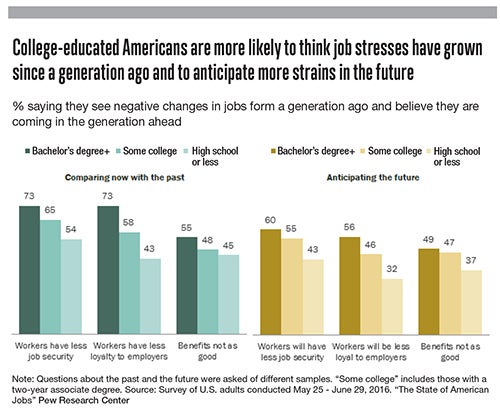
In a 2017 poll by Kronos, 95% of human resource leaders said employee burnout is sabotaging workforce retention, in the words of the Lowell workplace software company. HR representatives said burnout was responsible for up to half of employee turnover, yet they found no obvious solutions. Unfair compensation was called the most likely cause of burnout.
A majority of Americans (63%) believe jobs are less secure now than they were 20 to 30 years ago, and 51% anticipate jobs will become less secure in the future, according to a 2016 Pew Research Center poll.
Work-life balances are often out of whack.
A 2017 Pew Research Center poll found overwhelming support for stronger paid-leave benefits in a country lagging its European counterparts in paid time off for vacation, the birth of a child or other needs. Just over half (51%) said the federal government should mandate employers provide paid family and medical time off, 82% said women should have paid maternity leave, and 69% said fathers should have paid paternity leave.
The United States is the only one of 41 advanced world economies not mandating paid parental leave, according to the Organisation for Economic Co-operation and Development in France.
Massachusetts has begun requiring paid time off benefits more closely resembling what’s available in European countries, with paid leave of up to 12 weeks to care for a family member, including after child birth, and up to 20 weeks for the worker’s own illness. The family and medical leave act will go into effect this fall, with the first payments due from employers, but the benefit won’t be available for workers until 2021.
Pew has found a range of other trends are at play, too: Employees are working nearly four more hours per week than a generation ago, and more likely to have less concrete work arrangements, such as in temporary or contract work.
Hitting medical community hard
Coincidentally, it’s the medical profession itself that may be facing the most burnout, putting the field at the forefront of both how to help itself and how to help others address the issue.
Roughly half of physicians in some fields said in an American Medical Association survey they felt burnout, including those in urology, neurology, internal medicine, emergency medicine and family medicine.
Research has shown electronic health records now almost ubiquitous in health care are a major factor. Physicians feel they have too little time for time-consuming documentation requirements, and they end up managing records at home on platforms not intuitive to those using them, Dr. Rebekah Gardner, an associate professor of medicine at Brown University’s Warren Alpert Medical School in Rhode Island, said in a study she published last fall in the Journal of the American Medical Informatics Association.
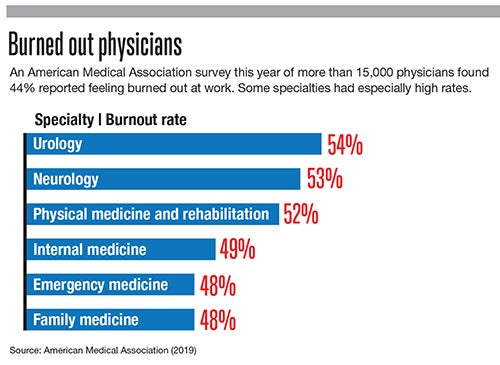
Patients of such physicians can be harmed, too, Gardner said, with research showing more errors and unnecessary tests.
The medical community has begun paying more attention. In March, physician burnout was called a public health crisis in a report authored by the Massachusetts Medical Society, the Massachusetts Health and Hospital Association, the Harvard T.H. Chan School of Public Health, and the Harvard Global Health Initiative.
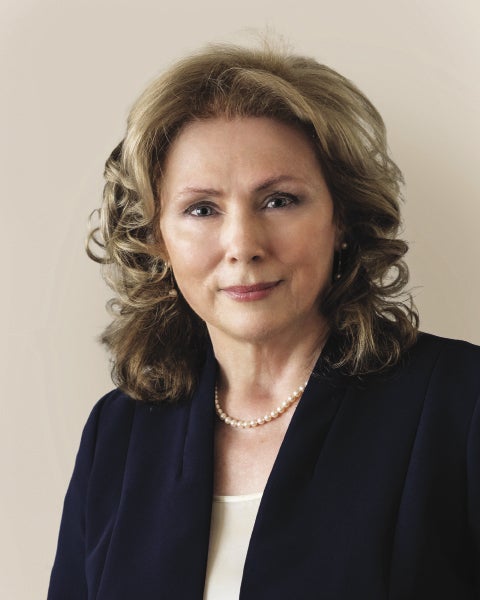
The severity of the issue became clear in the last few years as research has brought more to light, said Dr. Maryanne Bombaugh, the president of the Massachusetts Medical Society.
“We recognized, gosh, there’s something really significant going on here,” she said.
Bombaugh cited another factor tugging at physicians: different reimbursement systems, a fee-for-service model prioritizing seeing more patients, and value-based systems encouraging holistic care.
“It’s a conflicting healthcare model that physicians and everyone is working in right now,” Bombaugh said. “Physicians are leaving medicine because of the impact burnout is having on their personal lives and professional lives.”
How to address burnout
The World Health Organization emphasized it doesn’t consider burnout a medical condition, but a factor that influences someone’s health status. Burnout, the WHO said, includes feelings of exhaustion, negative or cynical feelings about one’s job, and a reduced effectiveness.
Not everyone can simply take extended time off or choose to ignore pressure to work harder and longer in order to effectively address burnout. But there are steps that can be taken, said Dr. David Ballard, the director of applied psychology at the American Psychological Association.
Ballard recommends exercise, limiting the use of electronic devices making breaking away from work especially hard, getting enough sleep, and making time for relaxing activities.
“Hobbies and interests are easy to get cut out when you’re busy, but they’re important to your stress recovery as well,” he said.
The medical field has so far taken the broadest steps to cut down on burnout, with some large hospitals in Massachusetts devoting new positions to addressing physician burnout, including UMass Memorial Health Care in Worcester. UMass Memorial, with the affiliated 1,100-physician medical group and the UMass Medical School, jointly funded a new position, a clinician experience officer, who will work primarily in physician engagement and addressing burnout.
UMass Memorial has created a peer-to-peer network to allow physicians to better help out one another, and other steps including creating private rooms for physicians to decompress or get work done by themselves, said Tosi, the UMass Memorial Medical Group president.
“No one has the perfect recipe for addressing the problem of burnout,” he said.

